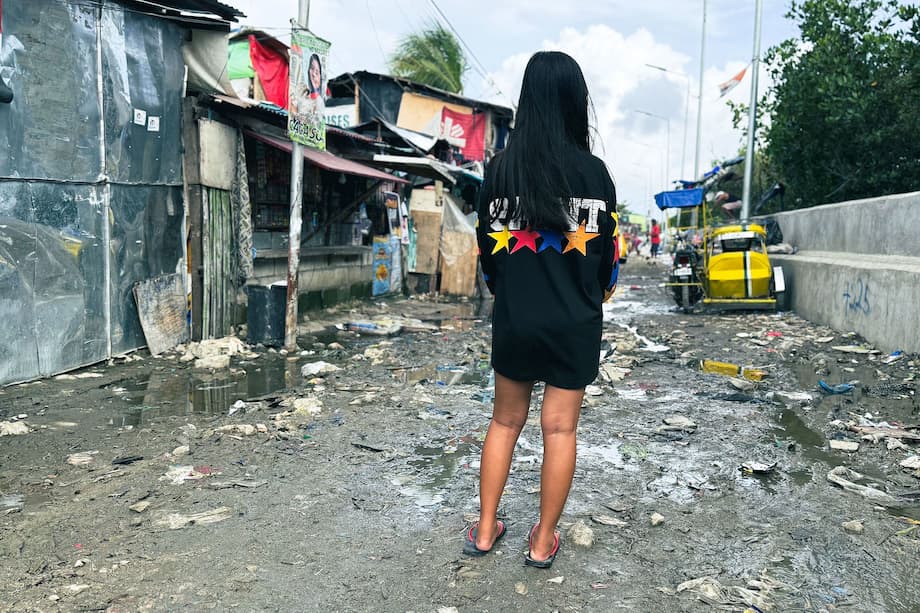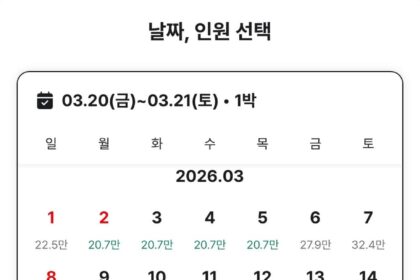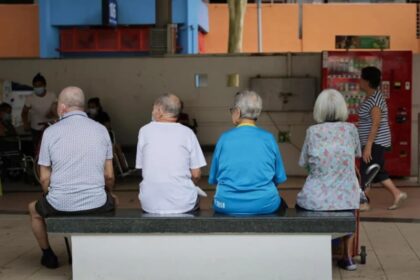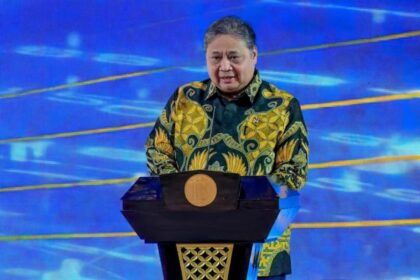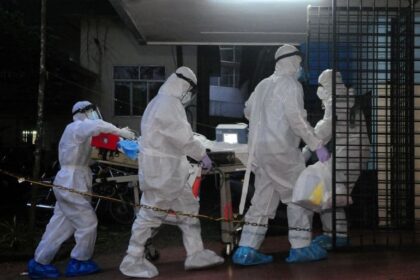Philippine Lawmakers Face Fierce Debate Over Sex Education as Teen Pregnancies Surge
Rising pregnancies among girls under 15 and mounting public support for school-based sex education fuel a national controversy in the Catholic-majority country.
In Manila’s sprawling Baseco compound, 14-year-old Clara is six months pregnant. She lives in a crowded informal settlement where more than 64,000 people make homes from concrete blocks and scrap materials, often vulnerable to flooding. Clara’s story is not unique. Across the Philippines, a growing number of girls as young as 10 are becoming mothers, sparking a heated national debate over how sex education should be taught in schools and who should decide what children learn about their bodies and relationships.
- Philippine Lawmakers Face Fierce Debate Over Sex Education as Teen Pregnancies Surge
- Why Are Teen Pregnancies Rising in the Philippines?
- Sex Education in the Philippines: What’s Taught and What’s Missing?
- The Adolescent Pregnancy Prevention Bill: Promise and Controversy
- Beyond Legislation: Community and NGO Efforts
- Why the Debate Matters: Health, Rights, and the Future
- Key Points
Recent government data shows a sharp rise in pregnancies among girls aged 14 and younger, up 38% from 2,411 in 2019 to 3,343 in 2023. While overall teen pregnancies among 15 to 19-year-olds have slightly declined, the surge among the youngest girls has alarmed health experts, lawmakers, and child rights advocates. The Philippine government has declared teen pregnancy a national social emergency, yet efforts to pass a comprehensive sex education law remain mired in controversy and political pushback.
Why Are Teen Pregnancies Rising in the Philippines?
The Philippines has one of the highest adolescent birth rates in Southeast Asia, with over 500 girls aged 15 to 19 giving birth every day. The situation is even more dire for girls under 15, whose pregnancies often go unreported or are the result of abuse. According to the Philippine Statistics Authority, live births among girls aged 15 or under rose by 35% from 2,320 in 2021 to 3,135 in 2022. Experts say these numbers reflect a complex mix of poverty, limited access to education and health services, restrictive laws, and deeply rooted cultural and religious beliefs.
Girls from low-income communities are especially at risk. Many drop out of school due to early motherhood, reducing their future earning potential and trapping families in cycles of poverty. The lack of comprehensive sexuality education (CSE) in schools, especially in rural and faith-based institutions, leaves many teens unaware of basic reproductive health, consent, and contraception. Dr. Aileen Marie Rubio, who works with adolescent mothers at Dr. Jose Fabella Memorial Hospital in Manila, explained,
“Most teens have very limited knowledge on reproductive health, consent, and what is considered abuse. Many didn’t know they could get pregnant if they had sex.”
For Clara, sex education was never taught in her class. She met her boyfriend through friends and became pregnant just six months into the relationship. Without money for antenatal checkups, she knows little about her baby’s health. Stories like hers are echoed across the country, with many young mothers saying they never received practical information about consent or contraceptives at school.
Health risks for young mothers are significant. According to the World Health Organization, girls under 16 are three times more likely to experience complications such as eclampsia, postpartum infections, and severe neonatal conditions. Their babies face higher risks of low birth weight and preterm birth. The psychological and social consequences are also severe, with many girls facing stigma, discrimination, and pressure to enter early marriages.
Sex Education in the Philippines: What’s Taught and What’s Missing?
Sex education in the Philippines is inconsistent and often limited. The Responsible Parenthood and Reproductive Health Act of 2012 mandated that government schools teach sex education and that hospitals offer reproductive health services. However, implementation has been patchy, especially in private and Catholic-run schools, where sex education is often skipped or reduced to abstinence-only messages.
Many students report that when sex education is taught, it lacks crucial information about consent, healthy relationships, and contraception. Sam, a 23-year-old mother, recalled learning about contraceptives in 8th grade, but only with a disclaimer not to use them. According to the University of the Philippines Population Institute, most parents prefer to introduce sex education in high school or college, and only a quarter have discussed sex-related matters with their children.
The Department of Education released guidelines for comprehensive sexuality education in 2018, describing it as age-appropriate, culturally relevant, and scientifically accurate. Teachers are encouraged to integrate these topics into various subjects, and parents are supposed to be involved in the process. Yet, many schools lack the resources, training, or support to deliver these lessons effectively. The result is a generation of young people who turn to the internet or peers for information, often encountering misinformation or harmful stereotypes.
Public Opinion Shifts Toward Sex Education
Despite religious and political resistance, public support for sex education is growing. A March 2025 Pulse Asia survey found that 73% of Filipinos believe it is important to teach sexuality, sexual health, and family planning in schools in an age-appropriate and culturally sensitive way. Support was strong across socioeconomic classes and religious groups, including Roman Catholics, Iglesia ni Cristo, and Muslims. Only 13% disagreed, while 14% were undecided.
This shift in public sentiment reflects rising concern over teen pregnancies and sexually transmitted infections, including a 550% increase in HIV cases since 2010. Advocates say the survey results underscore the urgency of combating disinformation and religious resistance to comprehensive sexuality education.
The Adolescent Pregnancy Prevention Bill: Promise and Controversy
In response to the crisis, lawmakers introduced the Adolescent Pregnancy Prevention Bill, also known as Senate Bill No. 1979 and House Bill No. 8910. The bill aims to make comprehensive sexuality education mandatory in schools and improve access to sexual and reproductive health services for adolescents. It calls for age-appropriate, medically accurate, and culturally sensitive education, as well as adolescent-friendly health facilities.
The bill passed the House of Representatives in September 2023 with unanimous support but has faced fierce opposition in the Senate and from conservative groups. President Ferdinand Marcos Jr., who initially supported the bill, later criticized it as “woke and abhorrent,” vowing to veto it in its then-current form. Several senators withdrew their support following lobbying by religious coalitions, particularly Project Dalisay, a group of at least eight evangelical and Catholic organizations.
Project Dalisay and its allies argue that the bill undermines parental authority and introduces inappropriate content based on international standards. They claim, often without evidence, that comprehensive sex education would teach children about masturbation, gender identity, and other topics they consider culturally inappropriate. Maria Lourdes Sereno, former Chief Justice and convenor of Project Dalisay, said,
“Comprehensive sexuality education intends to normalize sexual discussion, which is not part of Filipino culture.”
These arguments have been amplified by US-based anti-abortion organizations, whose materials have been used in local campaigns. Critics of the opposition say these claims are misleading and not reflected in the actual bill, which does not mention masturbation or gender identity and emphasizes adaptation to the Philippine context.
In response to the backlash, lawmakers amended the bill to remove references to “international standards” and added provisions to ensure parental authority and academic and religious freedom. Mentions of abortion and contraception were also cut. The latest version was refiled in early 2025 and is now undergoing further committee hearings and readings.
What’s Actually in the Bill?
The Prevention of Adolescent Pregnancy Act seeks to:
- Institutionalize comprehensive sexuality education at all education levels, covering human sexuality, consent, reproductive health, contraceptive use, disease prevention, gender sensitivity, teen dating, and digital citizenship.
- Establish adolescent-friendly health facilities and services.
- Allow minors to access reproductive health services, with parental consent required for those under 18 (with some exceptions).
- Promote parental involvement and respect for cultural and religious values.
Supporters, including Senator Risa Hontiveros, argue that the bill is necessary to empower adolescents to protect themselves from abuse, early pregnancy, and sexually transmitted infections. They emphasize that the curriculum would be age-appropriate and adapted to local culture, not imported wholesale from abroad.
Opponents remain concerned about parental rights and the influence of international organizations. Some lawmakers have called for removing comprehensive sex education from the curriculum entirely, while others seek to limit its scope.
Beyond Legislation: Community and NGO Efforts
While the legislative battle continues, non-governmental organizations and community groups are working to fill the gaps in education and services. Groups like Likhaan and the Family Planning Organisation of the Philippines send volunteers into underserved neighborhoods to provide information, safe-sex kits, and support for young mothers. They also engage parents, distributing pamphlets on how to talk to children about sex and relationships.
Save the Children Philippines runs the HEART to Heart program, helping parents and caregivers communicate with adolescents about sexuality and reproductive health. The ProtecTEEN program offers psychosocial support, educational aid, and livelihood assistance to teenage mothers. These initiatives aim to empower girls, support their return to school, and break the cycle of poverty and early motherhood.
Success stories exist. The Roots of Health Clinic in Palawan has reduced teen pregnancies in its area through comprehensive sexuality education and improved access to contraceptive services. However, such programs are not yet widespread, and many communities lack the resources or political support to implement them fully.
Why the Debate Matters: Health, Rights, and the Future
The stakes in the sex education debate are high. Early and unintended pregnancies have devastating consequences for young mothers, their children, and society. Girls who become mothers before 15 are twice as likely to die from pregnancy complications as women in their twenties. Their children face higher risks of health problems and poverty. Early motherhood often means dropping out of school, limiting future opportunities and perpetuating cycles of disadvantage.
Sexual violence and coercion are also major concerns. Data shows that most pregnancies among girls aged 10 to 14 are fathered by much older men, raising questions about consent and abuse. The average age gap is seven years, with some partners as old as 75. Comprehensive sexuality education is seen by advocates as a tool not just for preventing pregnancy, but for protecting children from exploitation and teaching them about boundaries and healthy relationships.
Despite the controversy, the majority of Filipinos now support age-appropriate, culturally sensitive sex education in schools. Advocates argue that accurate information and access to services are essential for young people to make informed choices and protect themselves from harm. As the debate continues in Congress and communities, the lives and futures of thousands of Filipino girls hang in the balance.
Key Points
- Teen pregnancies among girls aged 14 and under in the Philippines rose by 38% from 2019 to 2023, despite a slight decline among older teens.
- The Adolescent Pregnancy Prevention Bill aims to make comprehensive sexuality education mandatory in schools and improve access to adolescent health services, but faces strong opposition from religious groups and some lawmakers.
- President Ferdinand Marcos Jr. has threatened to veto the bill, calling it “woke and abhorrent,” leading to amendments that emphasize parental authority and remove references to international standards.
- Public support for school-based sex education is growing, with 73% of Filipinos in a 2025 survey agreeing it is important for schools to teach sexuality and reproductive health in an age-appropriate, culturally sensitive way.
- NGOs and community groups are working to provide information, support, and services to young people and parents, but many challenges remain, especially in rural and low-income areas.
- Early pregnancies have serious health, social, and economic consequences for girls and their children, making the debate over sex education a critical issue for the country’s future.


